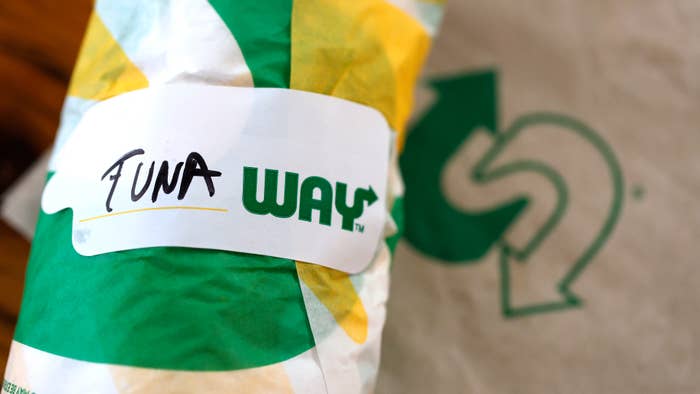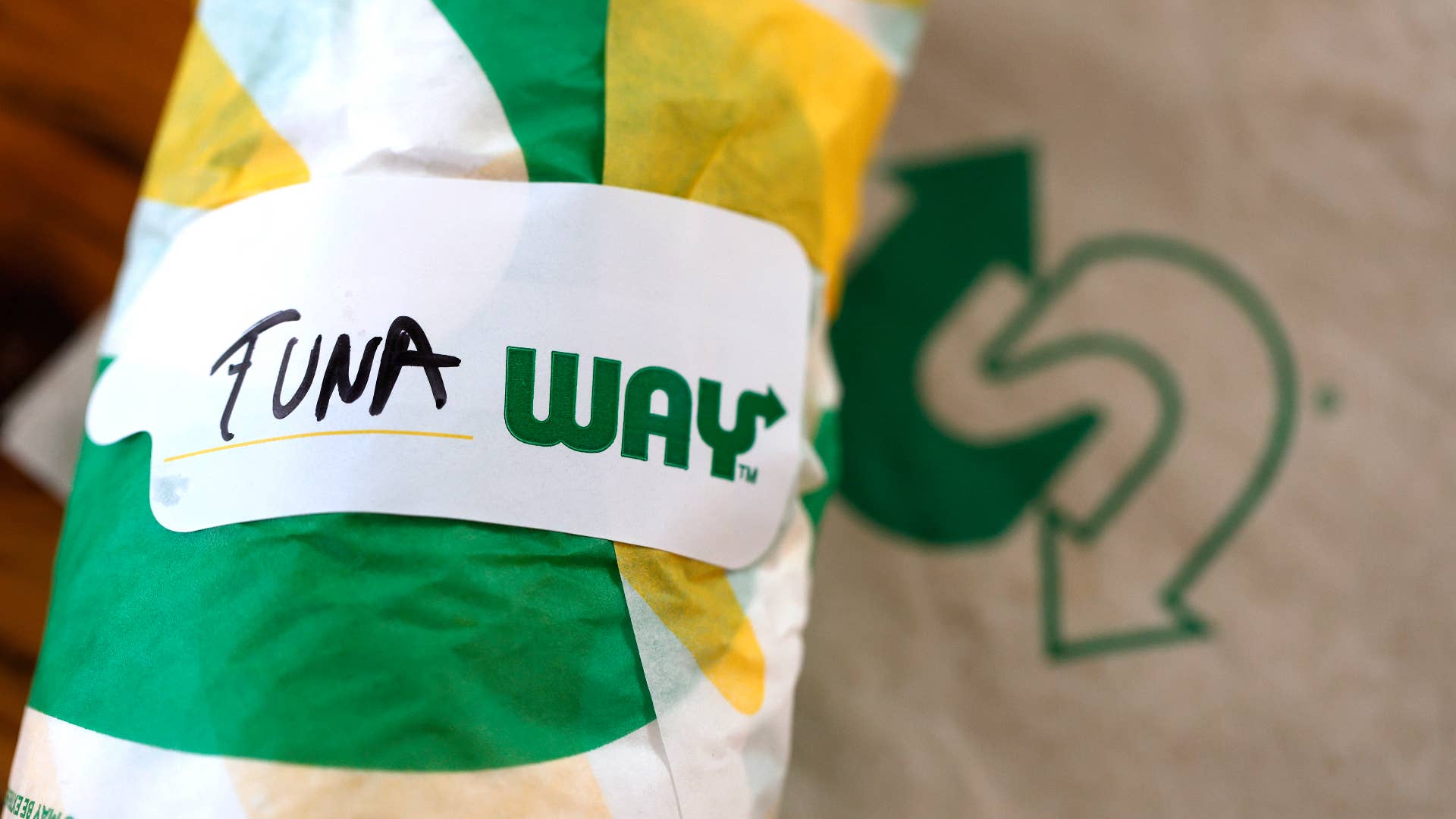
Subway found itself in yet another whirlwind of bad press after the New York Times recently published a report centered around its tuna sandwich.
The Times commissioned lab analysis after ordering “60 inches worth of Subway tuna sandwiches” from three separate locations in Los Angeles. The study determined that the submitted samples didn’t contain tuna DNA or a species that could be identified. “No amplifiable tuna DNA was present in the sample and so we obtained no amplification products from the DNA,” the report read. “Therefore, we cannot identify the species.”
The lab test was conducted months after a lawsuit was filed against Subway, alleging that the sandwich chain uses “a mixture of various concoctions that do not constitute tuna.” Their claims were supported by independent lab tests which suggest these mysterious ingredients are “blended together” in an effort to “imitate” the appearance of tuna.
Inside Edition conducted an investigation of its own, ordering sandwiches from three locations in New York City. The study revealed that the provided samples contained tuna.
As alarming as these findings may appear, there are a number of possible reasons why there was no tuna DNA present in the samples.
“There’s two conclusions. One, it’s so heavily processed that whatever we could pull out, we couldn’t make an identification,” a lab spokesperson explained. “Or we got some and there’s just nothing there that’s tuna.” A fish expert also posits if identifying the sample was made difficult because the protein was broken down after being cooked.
Subway’s statement calls into question the validity of DNA testing, while also borrowing part of the aforementioned fish expert’s explanation to support its rebuttal.
“A recent New York Times report indicates that DNA testing is an unreliable methodology for identifying processed tuna. This report supports and reflects the position that Subway has taken in relation to a meritless lawsuit filed in California and with respect to DNA testing as a means to identify cooked proteins,” the statement reads, per Business Insider. “DNA testing is simply not a reliable way to identify denatured proteins, like Subway’s tuna, which was cooked before it was tested.”
“Unfortunately, various media outlets have confused the inability of DNA testing to confirm a specific protein with a determination that the protein is not present,” the statement added. “The testing that the New York Times report references does not show that there is not tuna in Subway’s tuna. All it says is that the testing could not confirm tuna, which is what one would expect from a DNA test of denatured proteins.”
The chain also said that their tuna is “100% wild-caught, cooked tuna.”

